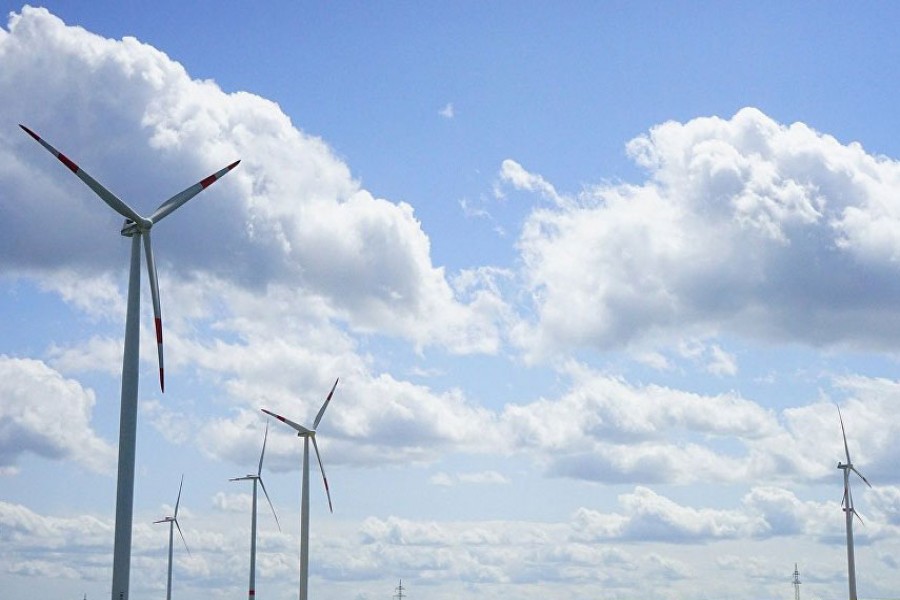The country's power sector is facing a crisis because of excessive reliance on imported fuel including coal and liquefied natural gas (LNG). As a result, the price of electricity for consumers is often raised as financial pressure on the state-owned Power Development Board (PDB) becomes acute.
Ironically, new plants are being set up despite a dearth of demand, forcing large parts of the national power production capacity to remain idle. Numerous oil-based rental power plants are also in operation that necessitates hefty expenses on account of imported fuel. Many of them are inactive in the absence of commensurate demand, but the government is legally bound to pay them capacity charges.
This sorry state of the power sector has been highlighted in a recent study conducted by the US-based Institute for Energy Economics and Financial Analysis (IEEFA), which explored the Bangladesh electricity market and pros and cons of policies pursued by the government.
The report points out that only 43 per cent of the country's power generating capacity was being utilised even before the onset of Covid-19 pandemic. The domestic demand for power has gone down further because of this calamity. As a result, PDB is compelled to pay huge capacity charges despite losses in revenue. The government had paid Taka 80 billion annually as subsidy to make up for losses and shortfalls in cash-flow even before the pandemic.
The tariffs for power also had to be increased to reduce losses. But despite this ongoing mess, the government has moved ahead with plans for setting up newer plants. This is likely to result in a long-term vicious cycle of overcapacity and financial losses. Based on the recent trends, IEEFA estimates that Bangladesh will have a surplus capacity of over 58 per cent compared to actual demand in 2029-30.
A high official concerned has however claimed in the media that our power generation capacity was not excessive compared to countries like India where overcapacity was extremely high. The same was the case with Western countries like the USA, and capacity charges were also being paid by those countries, he argued. The official asserted that expansion of capacity was good for boosting energy security and ensuring sustainability.
The IEEFA study, however, showed that the ideal power generation reserve margin for most countries was 10-20 per cent, and apprehended that the demand for power might fall considerably in the long run as opposed to earlier projections due to the impact of Covid-19.
The generation capacity in the power sector is currently 19,630 megawatt, according to figures provided by the PDB. But the peak demand in mid-May was only about 10,000 megawatt. It is estimated that the loss during April-December this year due to the impact of Covid-19 may total Taka 35 billion, as the demand has fallen by about 35 per cent. As Bangladesh has been gradually shifting from cheaper natural gas-fired power plants to ones dependent on imported coal and LNG, the country would fall into a trap of long-term overcapacity resulting in the need for more subsidies and higher tariffs. The power tariff has been enhanced 10 times by PDB during the past 11 years, thereby pushing it up by about 98 per cent. The retail power tariff was last increased by 5.3 per cent in February this year.
The IEEFA report says coal and LNG-fired power plants have become a liability for many developing countries like Bangladesh, as demand for power is not rising as per expectation. The Indonesian government provided about US$5.0 billion to its state-owned power company PLN during 2018 because of overcapacity and payment of subsidies.
Bangladesh appears to be treading the path of Indonesia, and the recent launching of the coal-based power plant in Payra, Patuakhali, can be cited as an example. Commercial production in the plant started on May 14, but the PDB has to pay a capacity charge of Taka 1.6 billion per month as more than half its capacity remains unutilised.
Many countries are cancelling coal-based power plants because of concerns about overcapacity. Egypt has recently shelved plans for a 6.6 GW coal-fired power plant and is instead considering renewable energy-based options.
However, just as unexpected setbacks like the current pandemic has slowed down the power projects, it has also provided a window of opportunity to reframe and reorient the power sector plans-cum-policies. New policies are required for stabilising power tariffs by reducing subsidies, where clean energy could be adopted as the main source of power generation. In fact, the cost of producing electricity from renewable sources has gradually declined over the previous decades. A new solar power plant started generating power in the country in September 2019, where the tariff is only Taka 5,525/MWh. Bangladesh will now have to take some difficult decisions with regard to land utilisation for clean energy in order to shift from the path of expensive imported oil and LNG-fired power plants. India and Pakistan have already witnessed the benefits of such a shift.
Subsidies paid by the government to PDB during 2018-19 fiscal year totalled Taka 80 billion, when capacity utilisation was only 43 per cent. The subsidies were estimated to be Taka 90 billion in the current fiscal year. But that amount would undoubtedly shoot upwards because of the impact of Covid-19.
Although there is scope for producing 21,000 megawatts of electricity from renewable sources, the target set by the government for the purpose has remained quite inadequate. And there has been even lesser progress in implementing that target. In the backdrop of the current crisis, effective steps should be taken for materialising the goal of generating more power from environment-friendly renewable sources, as pledged through the signing of Paris Agreement on Climate Change in 2015.
Dr. Helal Uddin Ahmed is a retired Additional Secretary and former Editor of Bangladesh Quarterly.


